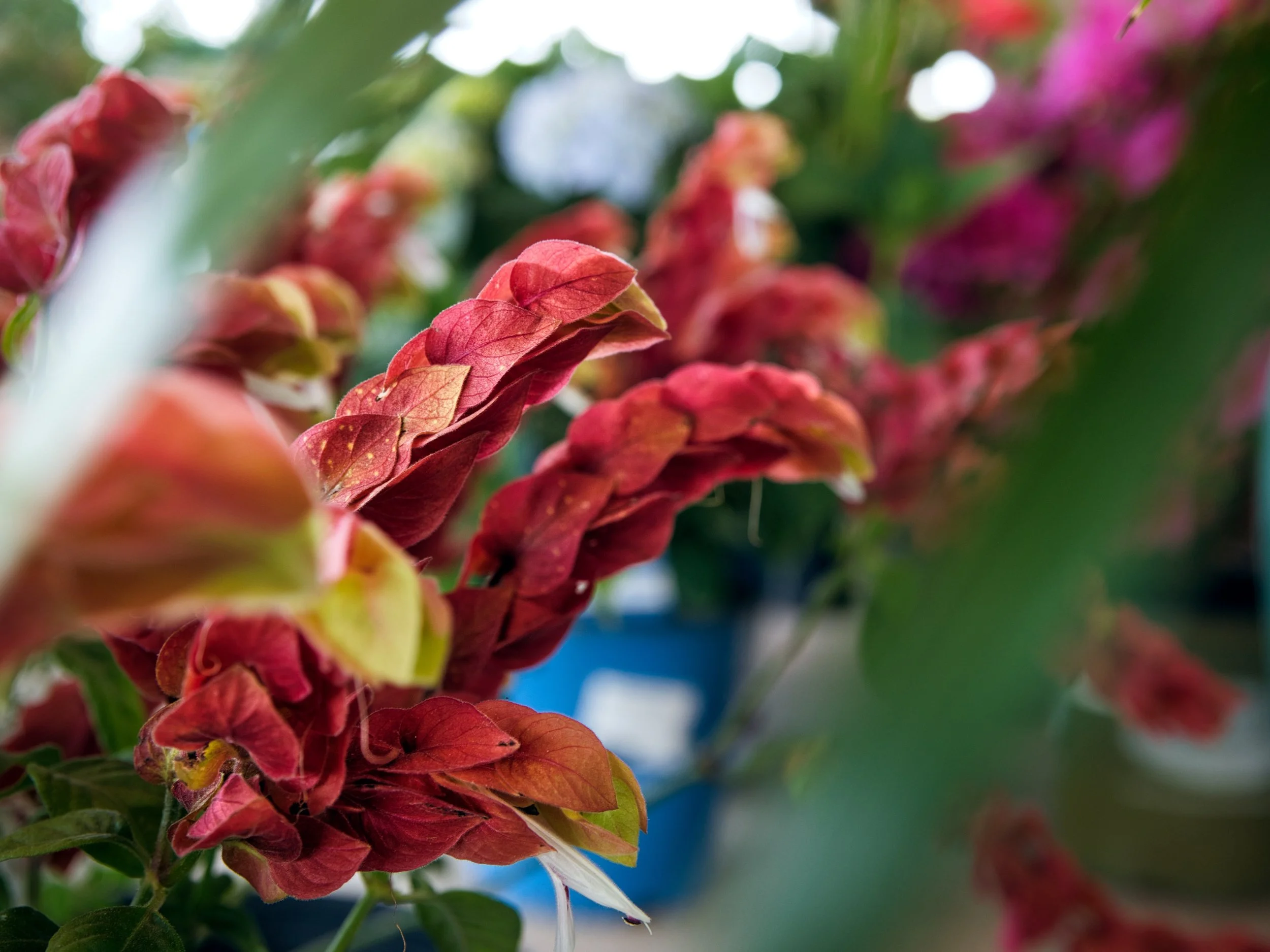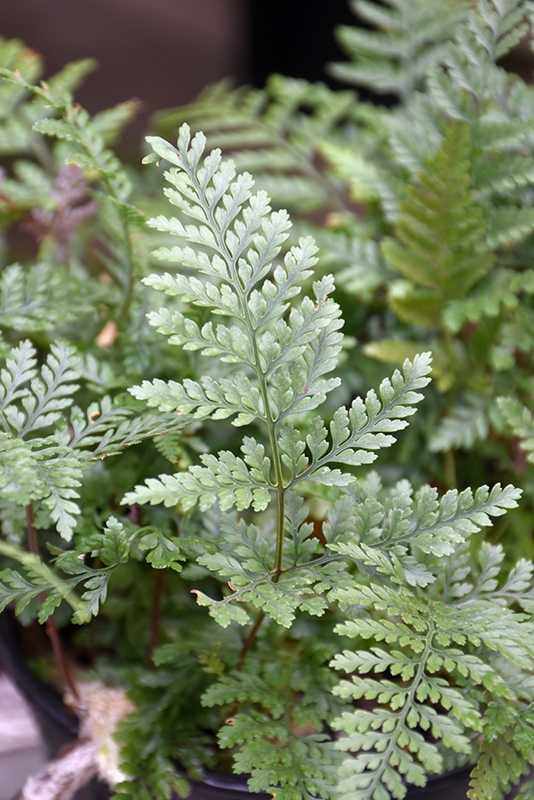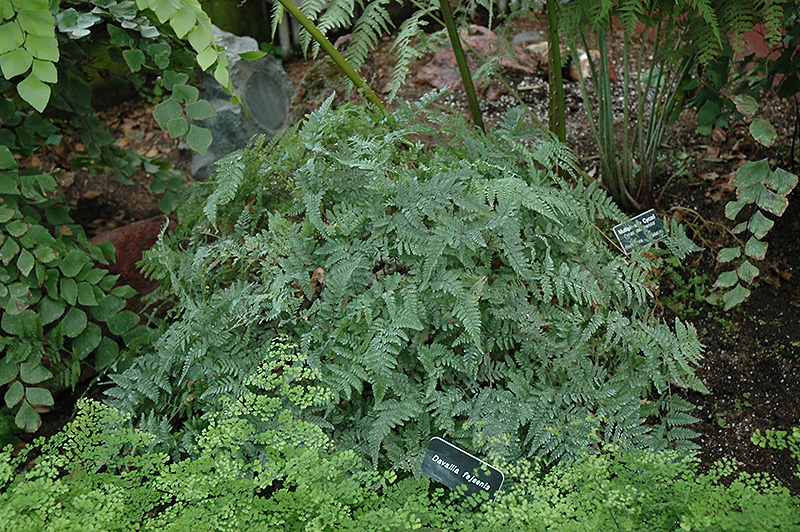Height: 3 feet
Spread: 4 feet
Sunlight:
![]()
![]()
Hardiness Zone: 9b
Other Names: Deer Foot Fern
Description:
Elegant, lacy fronds create a lush mound of foliage; develops interesting fuzzy rhizomes that hang over the sides of containers, and must be misted to avoid drying out; a great house or patio plant
Ornamental Features
Rabbit's Foot Fern is primarily valued in the garden for its ornamental upright and spreading habit of growth. Its attractive glossy ferny pinnately compound leaves remain bluish-green in color throughout the year.
Landscape Attributes
Rabbit's Foot Fern is an herbaceous evergreen fern with an upright spreading habit of growth. Its relatively fine texture sets it apart from other garden plants with less refined foliage.
This is a relatively low maintenance plant, and is best cleaned up in early spring before it resumes active growth for the season. It has no significant negative characteristics.
Rabbit's Foot Fern is recommended for the following landscape applications;
- Mass Planting
- General Garden Use
- Container Planting
- Hanging Baskets
Planting & Growing
Rabbit's Foot Fern will grow to be about 3 feet tall at maturity, with a spread of 4 feet. Its foliage tends to remain dense right to the ground, not requiring facer plants in front. It grows at a fast rate, and under ideal conditions can be expected to live for approximately 10 years. As an evegreen perennial, this plant will typically keep its form and foliage year-round.
This plant does best in partial shade to shade. It does best in average to evenly moist conditions, but will not tolerate standing water. It is not particular as to soil pH, but grows best in rich soils. It is somewhat tolerant of urban pollution. This species is not originally from North America. It can be propagated by division.
Rabbit's Foot Fern is a fine choice for the garden, but it is also a good selection for planting in outdoor containers and hanging baskets. With its upright habit of growth, it is best suited for use as a 'thriller' in the 'spiller-thriller-filler' container combination; plant it near the center of the pot, surrounded by smaller plants and those that spill over the edges. It is even sizeable enough that it can be grown alone in a suitable container. Note that when growing plants in outdoor containers and baskets, they may require more frequent waterings than they would in the yard or garden.



